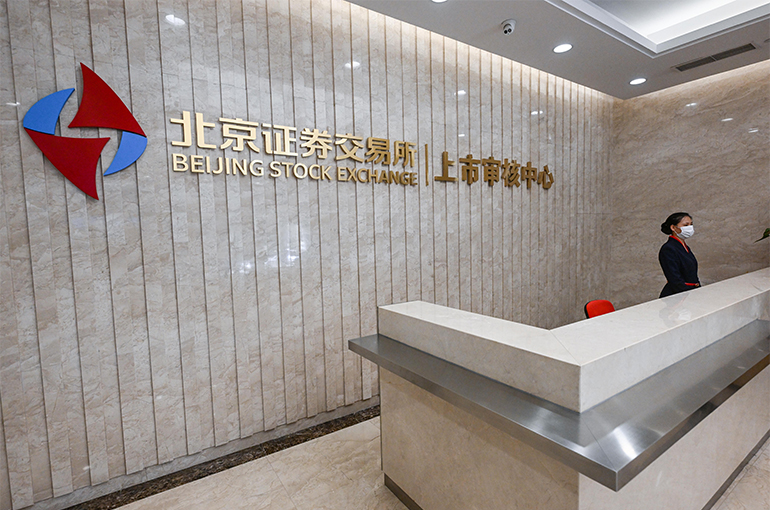 Beijing Stock Exchange Resumes IPO Approvals After Over Four-Month Halt
Beijing Stock Exchange Resumes IPO Approvals After Over Four-Month Halt(Yicai) June 18 -- The Beijing Stock Exchange has approved its first initial public offering after a hiatus that lasted four and a half months following the introduction of new capital market regulations in China.
The BSE gave the green light yesterday to Uestc Optical Communications’ IPO during its 10th listing review meeting of the year, the bourse announced. The Chengdu-based firm met the listing conditions, requirements, and information disclosure standards, it noted.
The last time the BSE approved an IPO was on Feb. 6, when Tongguan Mines Construction passed its review. The exchange, which opened for business on Nov. 15, 2021, suspended reviews mainly due to the new regulations introduced by China's cabinet this April, which aimed to strengthen supervision of the capital market.
Uestc Optical plans to raise CNY150 million (USD20.7 million), according to its IPO prospectus. The proceeds will be used for industrialization projects of its network bus and light-emitting diode display products, building a headquarters and a research and development center, and supplementing working capital.
On June 20, the BSE will hold its 11th listing review meeting for Zhejiang Taihu Yuanda New Material, suggesting that the exchange will get back to its twice-weekly review schedule, as seen over the past two years.
The new regulations were aimed at raising the listing standards for the main board and the Growth Enterprise Market and expanding on-site inspections for the companies and related intermediaries under review. Following their introduction, the Shanghai and Shenzhen bourses also halted IPO reviews until the middle of last month.
The BSE, upgraded from the National Equities Exchange and Quotations, was set up to better serve the financing needs of small and mid-sized businesses. According to the rules, only companies trading in the NEEQ's innovative tier for at least 12 months are eligible to list on the BSE.
The BSE had 249 listed companies as of yesterday, with a combined market capitalization of about CNY314.2 billion (USD43.3 billion).
Editors: Dou Shicong, Martin Kadiev